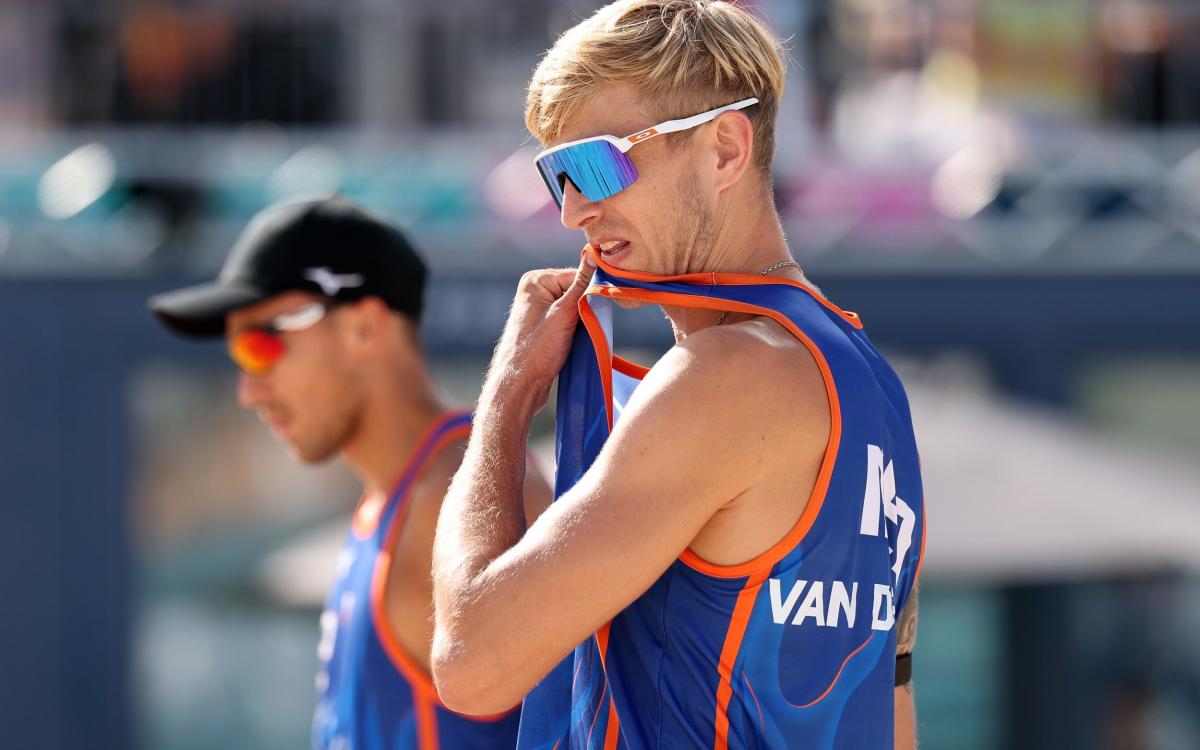
The Dutch Olympic team have explicitly admitted that they are shielding Steven van de Velde, the beach volleyball player who made his Games debut here on Sunday despite being convicted of raping a 12-year-old British girl when he was 19, from talking publicly about his past.
“We are protecting a convicted child rapist, yes,” said press attache John van Vliet after Van de Velde was allowed to swerve media duties after the event. “To do his sport as best as possible, at a tournament he qualified for.”
It was a staggering statement on a day unlike any the Olympics had seen. Van de Velde, 29, sentenced in 2016 to four years in prison on three counts of raping a child he had met on Facebook, was roundly booed as he emerged on court for his first match in the shadow of the Eiffel Tower, which he and playing partner Matthew Immers would lose to Italy. But the more extraordinary scenes came afterwards, as Van de Velde was ushered quickly away by three security guards, leaving Immers and Van Vliet to face a withering inquisition by more than 50 journalists.
While all athletes are required under International Olympic Committee rules to make themselves available to the media after competing, Van Vliet acknowledged that a special dispensation had been made for Van de Velde. “Definitely a different situation for Steven has been created,” he said. “We are very much aware that if we bring Steven out here, it won’t be about sport or his performance. There was a time before this, at least 100 tournaments in beach volleyball, where this never came up. He never had to do anything about it. So, we wanted to create the environment we are used to and not make it extra-special on a stage which is even bigger for these players.”
But a central issue is that Olympians are meant to be held to a higher standard than at other tournaments. All athletes in Paris are required to sign a declaration promising that they will act as “role models”. Given the nature of his crime, Van de Velde will likely fall, in the eyes of many, very far short of that description.
“The general matter of sex convictions or sex-related crime is definitely a much bigger issue than sport,” Van Vliet acknowledged. “But in his case, we’ve got a person who has been convicted, who did his sentence, who did everything afterwards that he can do to be able to compete again.”
Although arrangements have been made for Van de Velde to stay away from the athletes’ village, the Dutch delegation disclosed that he was still coming into their compound for team meetings. As bodyguards swiftly removed him from the venue to avoid scrutiny, his partner Immers, 23, was left to offer a highly uncomfortable defence of his involvement at the Games.
“He had his punishment,” Immers said. “And now, he’s really kind. For me, that’s a big example that you can grow. What happened in the past, it’s not good, of course.” Asked whether Van de Velde had ever expressed remorse for his dark history in private conversations, he replied: “No, he doesn’t. He doesn’t explain it. We just want to focus on now.”
